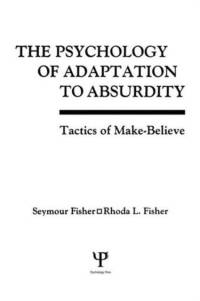Über The Psychology of Adaptation To Absurdity
The major goal of this book is to explore and integrate all that is scientifically known about the utility of magical plans and strategies for coping with life''s inevitable absurdities. Make-believe has great adaptive value and helps the average individual to function better in cultures saturated with puzzling contradictions. This book traces the origins of pretending (illusion-construction) and the developmental phases of this skill. Further, it analyzes how parents depend on pretending to secure conformity and self-control from their children. It unravels the ways in which make-believe is utilized to defend against death-anxiety and feelings of fragility. It examines the relationship between pretending and the classical defense mechanisms -- and particularly weighs the evidence bearing on the potential protective power of embracing religious beliefs. Finally, it defines the diverse contributions of make-believe to the construction of the self-concept, the defensive maneuvers typifying psychopathology, and the maintenance of somatic health. In short, this book pulls together a spectrum of scientific information concerning the defensive value of illusory make-believe in coping with those aspects of life -- such as death, loss, suffering, and injustice -- that are experienced as unreasonable and beyond understanding.
The volume is unique not only in the breadth of the literature it analyzes but also in demonstrating the contribution of make-believe to both the psychological and somatic aspects of behavior. No previous work has documented in such detail and across so many domains how basic the capacity to engage in make-believe is to human adaptation.
Mehr anzeigen

